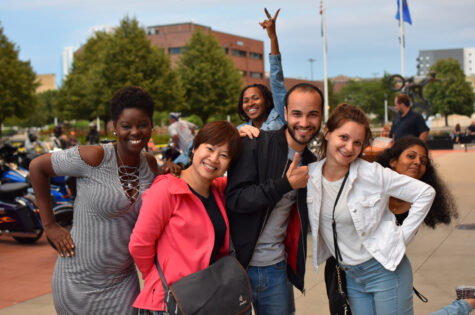The Water Smart Engagements (WiSE) Program worked to improve water security in selected cities in Southeast Asia by matching them with U.S. urban water and sewerage utilities. Water supplies of cities in Southeast Asia have been affected by the rapid increase of water use for urban, industrial, and agricultural activities. This rapid increase in use results in groundwater depletion and severe pollution of both groundwater and surface water. Storms, droughts, and floods have exacerbated existing problems. Serious needs include the improved management of surface and groundwater resources and the sanitation of domestic and industrial wastewater.
WiSE was a partnership with the U.S. Department of State Bureau of Oceans & Environmental Sciences, the U.S. Water Partnership, the Water Environment Federation, and members of the Global Ties Network. The program has created “twinning” relationships between water districts and utilities in five cities in Southeast Asia – all of which are part of the ASEAN Smart Cities Network – and five cities in the United States, for collective capacity building and innovative technology familiarization:
- Permodalan Darul Ta’zim (PDT; Johor Bahru, Malaysia) <-> DC Water (Washington, DC)
- Phuket Water Authority (Phuket, Thailand) <-> The Water Council (Milwaukee, WI)
- Saigon Water Corporation (SAWACO; Ho Chi Minh City, Vietnam) <-> San Francisco Public Utility Commission (SFPUC; San Francisco, CA)
- Vientiane City Office for Management and Services (VCOMS; Vientiane, Laos) <-> Clean Water Services (Hillsboro, OR)
- Metropolitan Cebu Water District (Cebu City, Philippines) <-> Miami-Dade Water and Sewer Department (WASD; Miami-Dade County, FL)
These relationships have been strengthened through a series of in-person and virtual engagements, culminating in a final event at Singapore International Water Week in June 2024. All five partnerships have worked to develop concrete action plans for sustainable relationships with specific areas for technical assistance and training.
Community-Based Members of the Global Ties Network that have supported the WiSE program include Global Ties Miami, Global New Orleans, Global Ties San Francisco, the International Institute of Wisconsin, WorldChicago, and WorldOregon.



